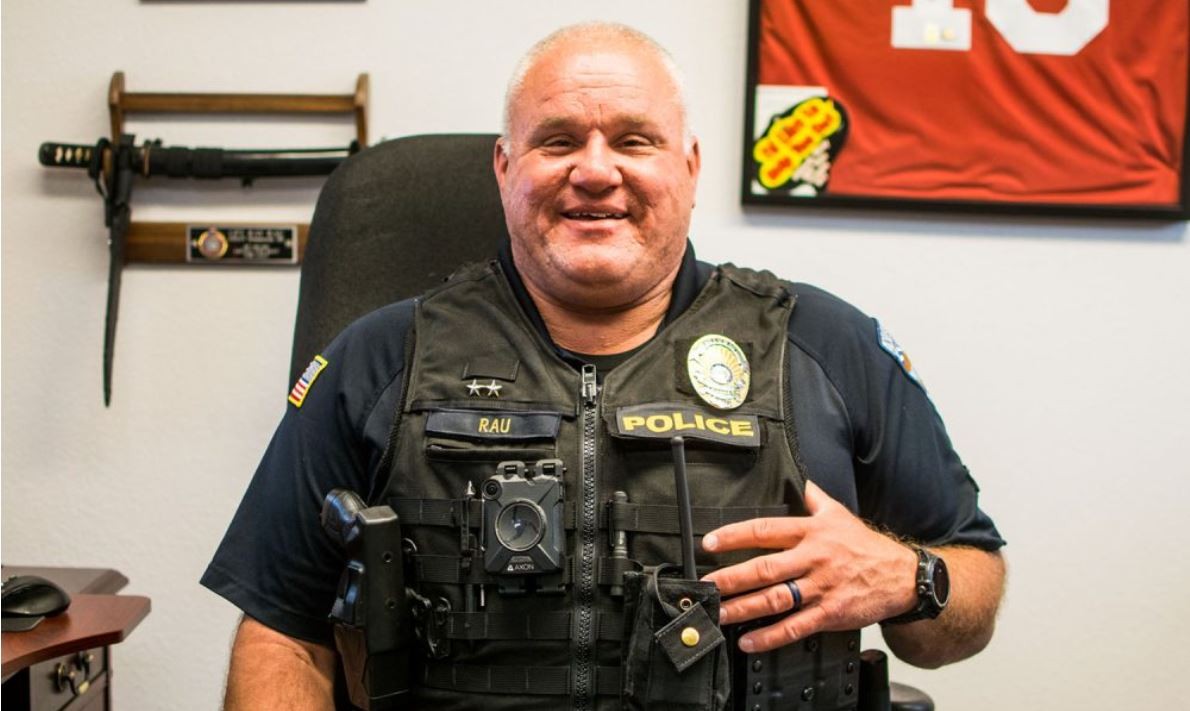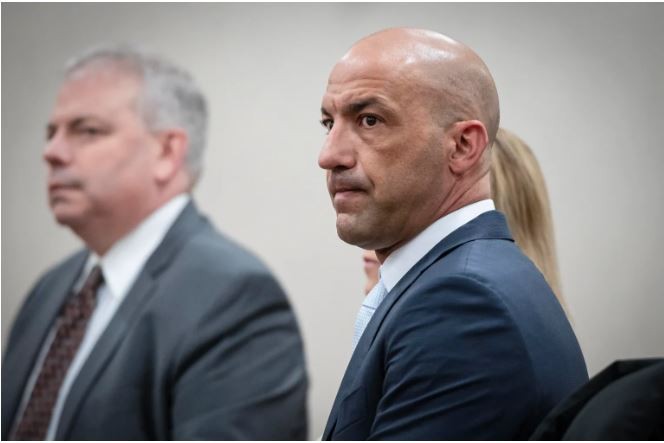- Home
-
News | Services
- CertificationEvidence Training & Certification Programs
- AccreditationAccreditation Guide & Resources
- Evidence News Top National & Global News
- NewsletterMonthly IAPE Email Newsletter
- Sponsors/AdvertisersAdvertisers & advertising options
- Job BoardView & Submit Job Listings
- Evidence Associations State Affiliates & Organizations
-
 ResourcesBooks | Manuals | Guides
ResourcesBooks | Manuals | Guides
- IAPE Forms & Professional StandardsForms | Standards Sample
- Manuals & GuidesSubmission | Packaging | & More
- DNA ResourcesJournal Articles & Law Enforcement Links
- Other ResourcesAudits | Digital | Best Practices
- Fentanyl ResourcesAudits | Digital | Best Practices
- Admin KillAdmin Approval to Purge Docs
- IAPE GalleryBest Practices From Agencies
- Fentanyl Resources & Guides
- Evidence by the book
- Evidence LogOnline IAPE Magazine
- Classes
- Membership
- About
- StoreIAPE Krapola
-
 Video ClassStudent Login
Video ClassStudent Login
Changes likely for new DNA bill;
1053 Hits
The Columbus Dispatch (Ohio)
BYLINE: Jim Siegel, THE COLUMBUS DISPATCH
Columbus, OH
Police chiefs group, inmate advocates share concerns with House committee
A bill designed to improve access to DNA evidence and enhance felony investigation techniques is likely to undergo changes as lawmakers try to address concerns raised by law-enforcement groups.
Rep. Tyrone K. Yates, D-Cincinnati, chairman of the House Criminal Justice Committee and a joint sponsor of the House version of the DNA bill, said he hopes to move the bill "within weeks."
The measure, Senate Bill 77, passed the Senate 32-1 in June.
"My plan is to consult with as many members as I can on the issue and try to get a thoughtful bill that makes its way out," Yates said. "There is such a smorgasbord of technical changes and adjustments that it's a little premature to say what the changes might be."
Debate continued yesterday in Yates' committee, where the Ohio Association of Chiefs of Police expressed concerns about the bill, while Mark Godsey, director of the Ohio Innocence Project, made a point-by-point defense of the legislation.
The bill would open DNA testing to parolees, set new standards for biological-evidence retention, require DNA samples from anyone arrested for a felony and require that lineups be performed by an officer who doesn't know the real suspect.
Law enforcement has been generally supportive of expanding DNA availability and testing. But there is serious debate over other key provisions:
* Retention of biological evidence.
Law enforcement says the bill's requirement that biological evidence be retained for at least 30 years will be both cumbersome and expensive for departments that already have crammed evidence rooms.
John Gilchrist, legislative counsel for the Chiefs of Police, said the attorney general, consulting with a new Biological Evidence Task Force created by the bill, should create evidence-retention schedules.
Supporters say the bill requires that evidence be retained only in cases of murder and sexual assault, which would exclude the vast majority of criminal cases. They also say large, bulky pieces of evidence could be discarded as long as the biological evidence is cut out or removed.
"We've seen other bills like this work in other states," Godsey said. "And by the way, if (we) don't pass this, Ohio will be in the minority."
* Blind administration of suspect lineups.
The bill requires that suspect lineups must be performed by an officer who does not know the identity of the actual suspect. Supporters say this will prevent officers from giving unintentional clues to witnesses.
Godsey said North Carolina and Wisconsin use a folder-shuffle method, where pictures are placed in folders and the officer does not know which contains the actual suspect.
Gilchrist said the lineup provisions in the bill "should be the subject of a training program and not be enacted into law."
* Recording of custodial interrogations.
Gilchrist called interrogation recordings an "aspirational goal that should not be required by statute." He and others also lamented the potential cost of transcribing those recordings and consequences if recording devices fail.
Supporters say the bill does not require recordings but provides incentives to do so. "If there is a county that's concerned about transcribing costs, then don't record," Godsey said.
- - - - - - - - - - - - - - - - - - - - - - - - - - - - - - -
International Association for Property and Evidence
"Law Enforcement Serving the Needs of Law Enforcement"
www.IAPE.org
BYLINE: Jim Siegel, THE COLUMBUS DISPATCH
Columbus, OH
Police chiefs group, inmate advocates share concerns with House committee
A bill designed to improve access to DNA evidence and enhance felony investigation techniques is likely to undergo changes as lawmakers try to address concerns raised by law-enforcement groups.
Rep. Tyrone K. Yates, D-Cincinnati, chairman of the House Criminal Justice Committee and a joint sponsor of the House version of the DNA bill, said he hopes to move the bill "within weeks."
The measure, Senate Bill 77, passed the Senate 32-1 in June.
"My plan is to consult with as many members as I can on the issue and try to get a thoughtful bill that makes its way out," Yates said. "There is such a smorgasbord of technical changes and adjustments that it's a little premature to say what the changes might be."
Debate continued yesterday in Yates' committee, where the Ohio Association of Chiefs of Police expressed concerns about the bill, while Mark Godsey, director of the Ohio Innocence Project, made a point-by-point defense of the legislation.
The bill would open DNA testing to parolees, set new standards for biological-evidence retention, require DNA samples from anyone arrested for a felony and require that lineups be performed by an officer who doesn't know the real suspect.
Law enforcement has been generally supportive of expanding DNA availability and testing. But there is serious debate over other key provisions:
* Retention of biological evidence.
Law enforcement says the bill's requirement that biological evidence be retained for at least 30 years will be both cumbersome and expensive for departments that already have crammed evidence rooms.
John Gilchrist, legislative counsel for the Chiefs of Police, said the attorney general, consulting with a new Biological Evidence Task Force created by the bill, should create evidence-retention schedules.
Supporters say the bill requires that evidence be retained only in cases of murder and sexual assault, which would exclude the vast majority of criminal cases. They also say large, bulky pieces of evidence could be discarded as long as the biological evidence is cut out or removed.
"We've seen other bills like this work in other states," Godsey said. "And by the way, if (we) don't pass this, Ohio will be in the minority."
* Blind administration of suspect lineups.
The bill requires that suspect lineups must be performed by an officer who does not know the identity of the actual suspect. Supporters say this will prevent officers from giving unintentional clues to witnesses.
Godsey said North Carolina and Wisconsin use a folder-shuffle method, where pictures are placed in folders and the officer does not know which contains the actual suspect.
Gilchrist said the lineup provisions in the bill "should be the subject of a training program and not be enacted into law."
* Recording of custodial interrogations.
Gilchrist called interrogation recordings an "aspirational goal that should not be required by statute." He and others also lamented the potential cost of transcribing those recordings and consequences if recording devices fail.
Supporters say the bill does not require recordings but provides incentives to do so. "If there is a county that's concerned about transcribing costs, then don't record," Godsey said.
- - - - - - - - - - - - - - - - - - - - - - - - - - - - - - -
International Association for Property and Evidence
"Law Enforcement Serving the Needs of Law Enforcement"
www.IAPE.org
How do you feel about this post?
Search IAPE
Blotter - Latest News
This story is not getting any better.
FDLE criminal probe of Starke Police: Guns, money, drugs among 2,500 pieces of missing evidence April 3rd, 2024 STARKE, Fla. — Action News Jax's Ben Becker is getting answers about a Northeast Florida...
Former Chief gets 10 days in jail!
Former Nyssa chief convicted of misconduct, sentenced to jail, loses badge April 3rd, 2024 Ray Rau, Tillamook police chief and former chief in Nyssa, was convicted of official misconduct Wednesday for...
Guilty! Vermont State Trooper Stole Evidence.
'Breach of trust': Former state trooper strikes plea deal in evidence room theft case April 5th, 2024 Giancarlo DiGenova, who resigned his position last year, received a probationary sentence Friday a...
News By Region
BC
(16)
District of Columbia
(22)
Northeast
(957)
Connecticut
(31)
Delaware
(7)
District of Columbia
(22)
Maine
(15)
Maryland
(38)
Massachusetts
(125)
New Hampshire
(26)
New Jersey
(33)
New York
(88)
Pennsylvania
(139)
Rhode Island
(12)
Vermont
(22)
Southeast
(1188)
Alabama
(49)
Arkansas
(30)
Florida
(172)
Georgia
(59)
Kentucky
(46)
Louisiana
(91)
Mississippi
(8)
North Carolina
(77)
South Carolina
(47)
Tennessee
(64)
Virginia
(47)
West Virginia
(35)
Southwest
(510)


